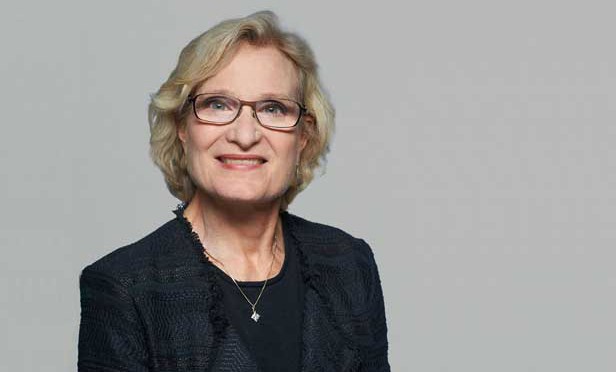The legal sector has seen major growth where emerging markets require immediate organizational development and expansion. Many of these markets are quickly evolving and expanding. The candidate pools are limited, and the talent is in high-demand. Cluen develops recruitment software that supports strategic search teams all around the world. We interviewed some of our clients to decipher what specific industries have seen the most growth.
Data Privacy/Cybersecurity
Data breaches are increasing at an astonishing rate and so is the demand for legal professionals with data privacy experience. The explosion of regulatory compliance in areas like data hosting and storage has resulted in law firms all over the world rethinking their attorney hiring and internal operational hiring altogether. New positions have been created from Privacy Compliance Officer, Data Governance Director, Privacy and Data Protection Counsel to HIPPA Privacy Officer. With U.S. compensation laws coming into play and GDPR around the corner, the need for talent in this area is expanding at an exponential rate.
InsurTech
Technology has changed the way the insurance industry conducts business. This transformation has led to an overflow of regulatory issues and disruption within the insurance product cycle. We now have sensors in cars, personal devices and the ability to break-up various insurance products that allow for media and data tracking in real-time. Â
Brad Bruner, East Coast Managing Partner at Mlegal Group, explains: “The continuing proliferation of InsurTech has not only disrupted the traditional insurance industry in its drive to squeeze out efficiencies in many innovative ways. It has also brought the highly regulated insurance industry into the former regulatory Wild West of technology innovation and online commerce. InsurTech is proving to be a bonanza for attorneys who have the relevant regulatory chops relating to insurance law and the requisite technical savvy to keep up with the lightning-fast changes affecting online commerce across numerous jurisdictions.â€
Blockchain/Cryptocurrencies
These peer-to-peer decentralized networks enable developers to create markets for transactions of goods and services, without a middleman. This can drastically reduce the time it takes to make and log transactions as well as the cost and labor involved in property transfers.
Overall, we found the blockchain practice area to be one of the most challenging sectors in legal recruitment. Evan Fox, Director of Recruiting at Audrey Golden, explains: “We are seeing a very high demand for FinTech attorneys in the blockchain and cryptocurrency space. The work emerging is generally concerned–at this stage at least–with products or transactions that are covered by the securities laws. Thus, the ideal candidate is someone who has a thorough grasp of the technology and can counsel clients on securities issues and financial regulations.
Since the candidate pool is small, firms are interviewing more candidates that they may not otherwise have looked at, such as someone from a lower tier school, a smaller firm, or even someone who’s current practice covers only 20% of what they are looking for. I give all my candidates interested in blockchain the same advice. First, be flexible. Blockchain technology is evolving rapidly leaving everyone to guess the dominant legal issues in years to come. Second, do whatever you can to elbow your way into any deal concerning this technology, no matter how small the role – even the smallest experience can differentiate your resume from the others.† Â
Interactive Gaming
The soon-to-be billion-dollar eSports industry has become mainstream, to say the least. Attorneys are being hired to help players, teams and game developers with their business and legal matters like contract negotiations, legal betting concerns, mergers and acquisitions, litigation, intellectual property, privacy/data collection, and endorsements.
Additionally, there is an increasing need for legal services within the VR/AR sectors. Copyright law, intellectual property, privacy/data collection and even contractual debates regarding collaborations between the two gaming platforms.
Energy
There have been significant increases in energy projects and various developments in renewable technologies. Specifically, clean tech, mining and oil and gas. This means energy companies are required to comply with an increasingly regulated environment. Finding the talent with knowledge of the ever-changing landscape will be vital in ensuring this success of this transforming industry.
Cannabis Industry
According to Cowen & Co, the $6 billion legal cannabis market is expected to reach $50 billion by 2026. Recreational use has been legalized in eight states, including California, and the District of Columbia. This means there has been the immediate need for attorneys to aid in defining countless regulations as well as in every aspect of the process from contracts, manufacturing to distribution, taxes, and sale.
Trending Practice Areas
Scott Love, President of The Attorney Search Group, explains: “One of the hottest practice areas for law firms is corporate transactional. Not only is the immediate activity on an increasing trajectory in terms of short-term revenue potential, but strategically this practice area gives law firms deep roots into clients that can be parlayed into cross-selling opportunities for other practice areas. The true client ownership experience usually starts in this practice area. Once the client relationship is solid, opportunities for legal work can be then shared with other groups, such as IP, Labor and Employment, and commercial litigation.â€
What It Means for Legal Recruitment
Law firms and in-house teams are moving quickly to hire within these markets. If your recruitment firm is looking to capitalize within these areas, you should update your recruitment database by making sure that you are capturing these sectors. Start assessing potential candidates along these vectors and create your talent pipelines accordingly. These positions are in high demand and the market for talent that excels within these industries happens to be limited.
Start your job search with Lawjobs.com today.
AUTHOR:
Kandace Miller.
The Cluen Corporation
[email protected]
linkedin.com/in/kandacem
www.cluen.com
Â










